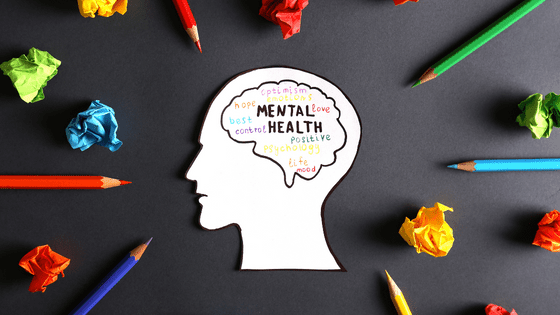The present situation in the UK is described as a mental health crisis, with demand for mental health services far outweighing supply.
The cost to the UK of the current mental health crisis is colossal; at £117.9 billion per year, this equates to 5% of the UK’s total GDP (Gross Domestic Product). Although this sounds high, the actual cost is more significant as these figures are solely based on those receiving some form of mental health treatment. Therefore, there is a gap in the data regarding those who need support but aren’t currently receiving it.
So, why is our mental health getting worse?
Causes of the Mental Health Crisis
We are now feeling the after-effects of Covid 19. In fact, the World Health Organisation has reported a 25% increase in the prevalence of anxiety and depression worldwide since the pandemic broke out. It is unsurprising, given the worries brought on by the pandemic and the uncertainty of what the virus would bring – with people concerned about losing their jobs, homes, good health and loved ones. Lockdowns caused further problems with people being socially isolated.
Additionally, the cost-of-living crisis is contributing to the rise in mental health conditions. The Royal College of Psychiatrists has warned that although the mental health effects of the economic crisis aren’t apparent yet, they expect the aftermath to be similar if not worse than the pandemic, with the problem continuing for many years.
The increased cost of living has led to heightened anxiety and stress, particularly for those on lower incomes. We’ve all seen the media stories of people investing in warmer winter clothes, heated blankets, and even wearing gloves and hats at home to keep energy costs down. Those affected most are even having to decide whether to ‘heat or eat’.
Altogether, for many, the pandemic has made the cost-of-living crisis harder and has been an additional burden because they have already experienced almost three years of stress and uncertainty.
While these factors may cause increased stress in our personal lives, the effects have taken their toll on the workplace.
Mental Health at the Workplace
The rising number of mental health disorders has significantly impacted workplaces, with employees finding it difficult to perform to the best of their ability when suffering from depression or anxiety.
Workplaces have already noticed a substantial fall in productivity. In fact, 72% of the £117.9 billion per year mentioned above is due to lost productivity. In turn, mental health issues manifest in physical illnesses such as heart disease, back pain, and headaches, which may be caused by but not necessarily attributed to poor mental health.
In addition, people have struggled with returning to office work. Some have found it daunting, whereas others are facing challenges when it comes to childcare and the cost of commuting. In contrast, however, others found working at home isolating and lonely and have welcomed being back in the office.
Either way, leaders have needed to consider flexible working options and how they can best support their people’s wellbeing while doing so.

How Can Leaders Support Mental Health?
Now, more than ever, it is vital that leaders step up and take action to support the mental health of their staff. Research from The Mental Health Foundation shows the economic case for focusing on preventing mental health conditions rather than focusing so heavily on treatment. Currently, many businesses focus on providing support such as Mental Health First Aiders and Employee Assistance Programmes. However, much more can be done to take a prevention-based approach, improving mental wellbeing and reducing the economic costs of poor mental health.
Here are some things you could be doing:
Encourage more open communication
People Management reports that while many thought Covid 19 would make people more comfortable talking about their mental health, employees now feel more pressure to hide mental struggles from their employers. Therefore, the more you can do to encourage people to open up, the better – don’t simply wait for Time to Talk Day or Mental Health Awareness Week. Make it part of your everyday culture.
Discounted gym membership
You may already provide this for a gym close to the office, but how many people take it up? Typically, people prefer to choose their own gym, and with remote working increasing, people like to attend gyms close to their homes. Therefore, consider providing a discount or contribution to a gym membership of their choice.
Bring people together in different ways
With so much hybrid and remote working, people can go months without seeing their colleagues. Develop a strategy where you enable people to come together as much as possible away from their day-to-day work. This could include work-related events such as training workshops and company conferences. It could also include more social events such as yoga retreats, theatre trips and activities such as go-karting – not just events associated with drinking alcohol.
Ask your people what they want
To know how best to support your staff, it’s essential that you ask them. Everyone is different, and it is impossible to please everyone. However, you may find several options that would suit the majority of the workforce.
As a leader, you also have a duty to direct any of your employees who may be struggling in the direction of support. Therefore, we’d recommend taking the following steps:
- Assess what you are doing to help support the mental and physical wellbeing of your team and what more you could be doing – don’t forget to ask them what their views are.
- Become well-versed in company policies and procedures surrounding mental health so you can inform staff of options available to help them. After all, if you don’t know where to seek help and support, how will your team?
- Ensure you are looking after your wellbeing – put your oxygen mask on first. Then, you’ll be in a better place to support your team.
If you’d like to discuss how we can help you develop your mental health awareness or that of your team, book a free discovery call here. We’d love to speak with you.
Published Monday 19th December 2022.




